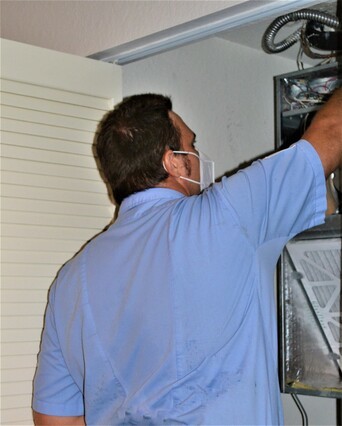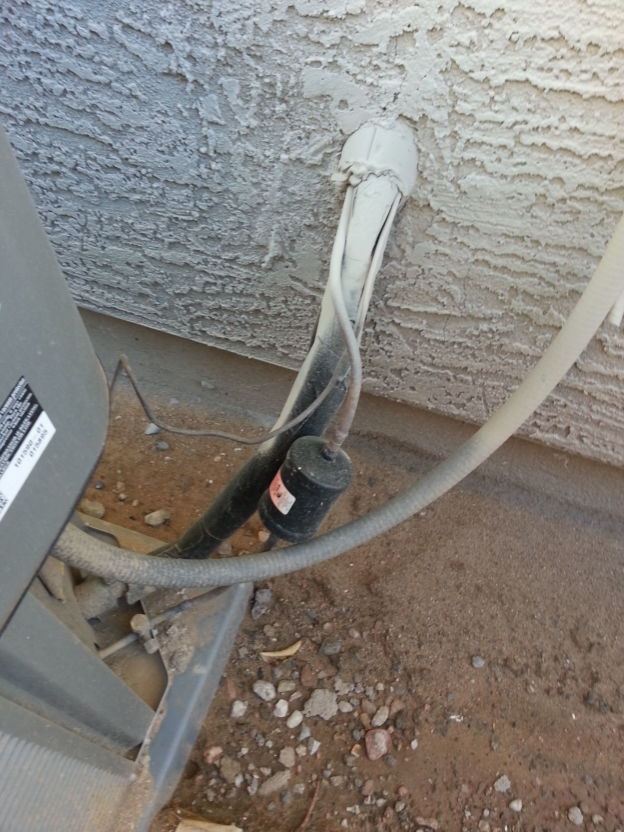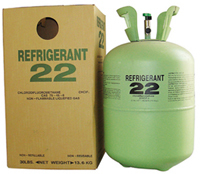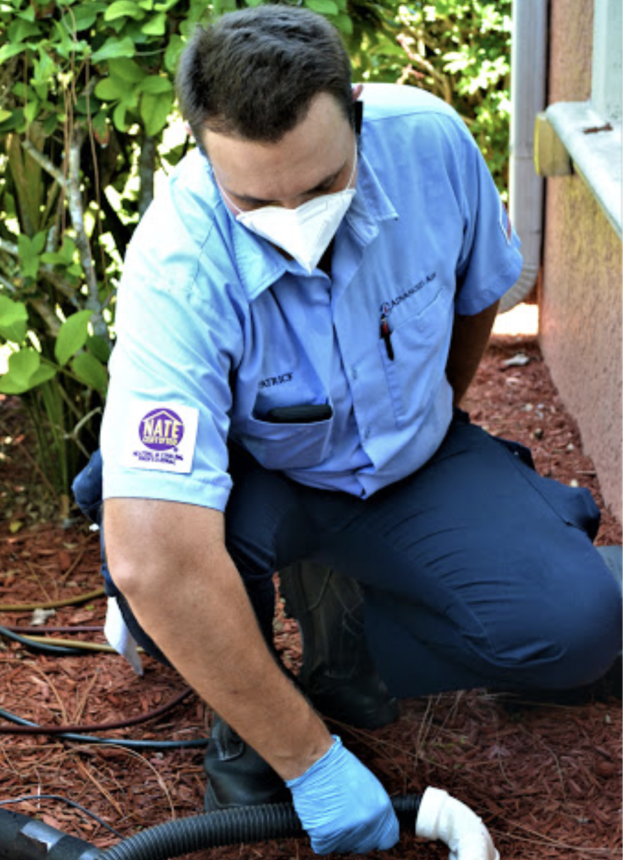Why Is My AC Making a Bubbling/Hissing Noise?
October 19, 2021

Advanced Air technicians will inspect your AC to find the refrigerant leak.
Is your air conditioner suddenly making a bubbling or hissing noise? You’re probably wondering what’s causing it and whether you should be concerned.
If you hear bubbling or hissing noises from your AC and notice water leaking from your indoor unit, ice buildup on the unit, or your AC constantly running, the problem is most likely a refrigerant leak.
Of course, no Florida resident wants to be stuck with no AC, so to fix the problem, there are three possible solutions:
- Add more refrigerant
- Repair the leak and add new refrigerant
- Replace your AC unit
Before we review your options, let’s look at why it’s important to do something about the leak instead of just ignoring it.
Need a Florida tech ASAP for your AC repair? Contact Advanced Air. We can help you resolve any bubbling and hissing sounds you hear within a day.
Why Should I Repair My AC?
A refrigerant leak is more serious than it may sound because refrigerant is a toxic substance that can harm people and the environment. Exposed refrigerant is dangerous to your household.
Not to mention that many refrigerant leaks may start small, but they can worsen with time and cause a variety of other problems, including:
Your AC won’t be able to keep you cool.
Refrigerant is a chemical compound in your air conditioner that absorbs the heat from the air inside your home and dumps it outside. If you have a refrigerant leak, your AC won’t absorb as much heat, and it won’t cool your home as efficiently.
Your utility bills will spike.
With a refrigerant leak, your AC will struggle to cool your home. As a result, it will constantly run to overcompensate, which will drive up your utility bills.
Your AC is more likely to break down.
The extra wear and tear caused by your AC running all the time may lead to more problems and expensive repairs down the line.
Low refrigerant levels also reduce the pressure and temperature in your AC’s evaporator coil, which can cause it to freeze over. If your AC runs with a frozen evaporator coil, the compressor in the outside unit can become damaged, which is another expensive repair or replacement.
To fix the refrigerant leak, let’s look at the three possible solutions.
Add More Refrigerant

AC refrigerant lines work in a closed-loop system.
Adding more refrigerant or “topping off” levels and not repairing the AC is generally not advisable. While some contractors may offer to just add more refrigerant to your AC without also repairing the leak, this is ultimately just a temporary band-aid fix and not a solution.
It is not the best option for many reasons:
- Refrigerant works in a closed-loop system, so topping it off will only lead to another leak if the actual cause goes unaddressed.
- If the leak is severe, you’ll eventually need to add more refrigerant. Over time, you could end up paying much more than the initial price of repairing the leak.
- Most older AC systems use R-22 refrigerant, which the government has phased out. You can still purchase it, but it’s only available through after-market sales, and it’s costly. If you have an older air conditioner that uses R-22 refrigerant, it might be more cost-efficient to upgrade your system instead.
- Choosing not to repair the leak could still lead to other problems, such as higher energy bills and an overworked AC system.
A hissing sound is often an indicator that a refrigerant leak is significant. So, although adding more refrigerant may seem like a quick and easy solution, you probably need to repair or replace your AC instead.
Repair the Leak and Add New Refrigerant
Because of the closed-loop system that refrigerant cycles in, it is crucial that you repair the leak before topping off the refrigerant.
For a technician to repair the leak and add new refrigerant, they will have to:
- Find the leak: A trained technician might use several strategies to locate the leak, including ultraviolet dye or electronic leak detectors.
- Evacuate the remaining refrigerant: Then, the tech will use a vacuum to remove air, nitrogen, and moisture from the system.
- Repair the leak: The tech will solder the leak closed or replace the leaking part.
- Add new refrigerant: Once the tech introduces new refrigerant to your AC system, they will charge it according to the manufacturer’s specifications. Doing so ensures that the system is not overcharged or undercharged.
Once a tech repairs the leak, they should also test it to ensure that your AC is working properly and there aren’t any other leaks.
Replace Your AC Unit

Old AC systems use R-22 refrigerant, which is outdated and expensive to recharge.
Depending on the size and location of the leak, repairing it could be expensive.
If your air conditioner is around 10 years old, replacing costly parts to fix a leak would not be worth the expense. It could also be using an outdated refrigerant called R-22, which is no longer in production and would be difficult and expensive to recharge. Instead, replacing your AC unit may be the most cost-effective solution.
An experienced HVAC technician can give you trustworthy advice on whether you should replace your AC. They can also help you determine what type of system would be best for your home and budget.
Schedule an AC Repair With Advanced Air in Southwest Florida.

Concerned about your AC making bubbling or hissing noises? Contact Advanced Air to inspect your AC.
Contact Advanced Air for convenient and fast AC repairs. We’ll send a reliable technician to your home to investigate the cause of the hissing and bubbling sounds. Before we complete any work, we’ll review our findings with you and give you an upfront cost for the repair so you’re not blindsided by any surprise expenses.
When you’re ready, check out our 5-star reviews to find out why homeowners in Southwest Florida trust us to get the job done.
- Posted in:
- Air Conditioning

